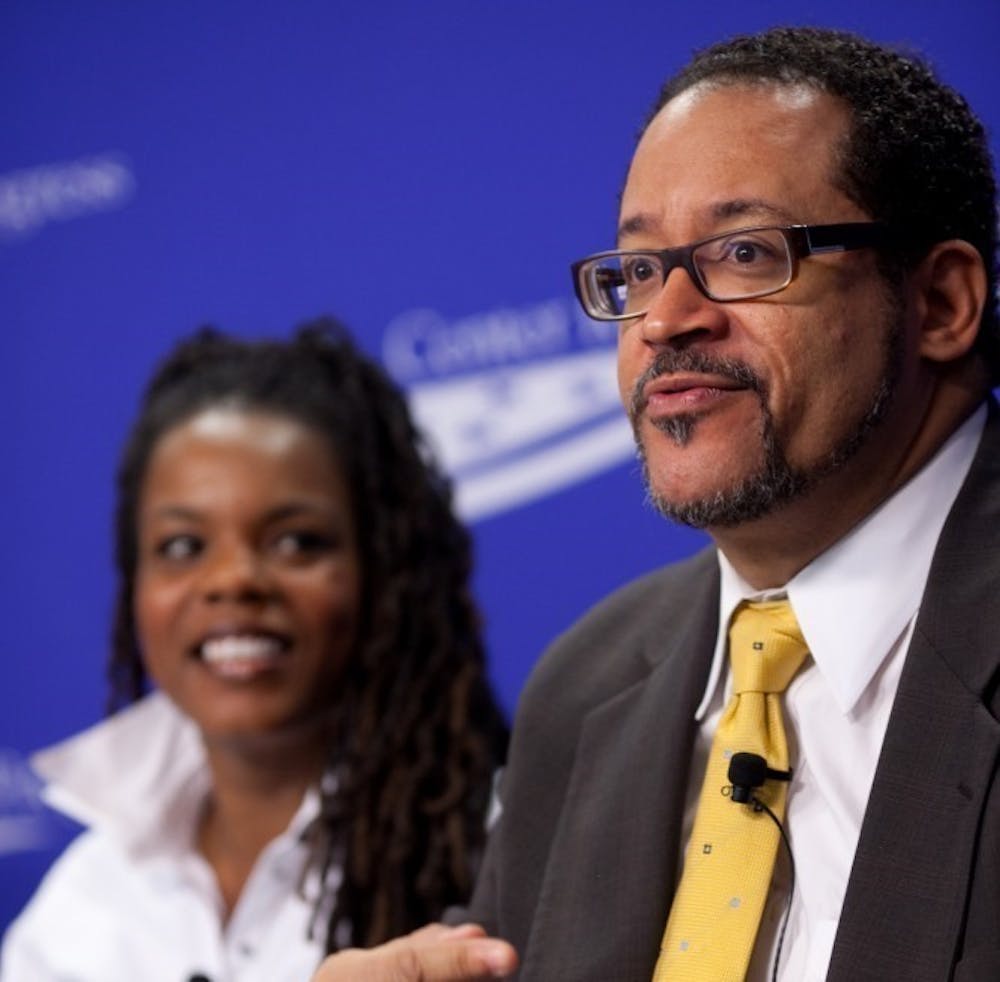Dr. Michael Eric Dyson’s presentation for Unity Week has drawn a mixed reaction from some of the Ball State community.
After Ball State announced Dyson as the keynote speaker for Unity Week, a Ball State professor said Dyson is unfit to fill the role and sent Ball State officials an email expressing his views.
Dyson, a Georgetown University sociology professor with a doctorate in religion from Princeton University, has written 17 books, including a national bestseller on the Rev. Dr. Martin Luther King Jr. and is also a contributing opinion writer for The New York Times, a contributing editor of The New Republic and of ESPN's The Undefeated website, according to Dyson's website.
Ramon Avila, George and Frances Ball distinguished professor of marketing, said Martin Luther King Day “ought to be a celebration … bringing us all together.” With Dyson as the keynote speaker for Unity Week, he said it does not honor that message.
Avila said in the email, “It is a disgrace for BSU to honor Dr. King with a man that is known to be so polarizing.”
Avila said he does not see Dyson as a unifying speaker because of Dyson’s stance on using the N-word and who is racist or not. Avila said Dyson’s message is not unifying by saying a black man can use the N-word but a white man can’t, and a white man can be racist but a black man can’t.
On the track “The -N- word” from Cornel West’s album "Never Forget: A Journey of Revelations,” Dyson said he does not think that “white folk and anyone outside of the community” can use the N-word.
“I come out of a tradition that respects the integrity of particular context which means that the N-word grew out of a loving, affirming culture that used it in opposition to how the dominant white culture was using it. So they were trying to beat us down and black folk were trying to circulate that term in a loving, endearing, embracing way,” Dyson said on the album
“Dr. Dyson uses the N-word regularly because he can,” said Avila in the email to the university. “You can look him up on YouTube or on the web. None of his talks are positive and unifying … his talks make me sick to my stomach. In light of what the campus went through with John Schnatter, this is a bad message to send across our campus."
In August, Ball State's Board of Trustees removed Schnatter's name from the university's Institute for Entrepreneurship and Free Enterprise. This was after the board made a statement that the school would not remove the name after Schnatter used the N-word during a private meeting with consultants, which was met with controversy.
Avila said he wants Dyson to speak on campus, but at another time. He said Ball State’s MLK keynote speaker should be for everyone, sending a unifying message.
“Let’s take it to the other extreme. I mean, if we said Donald Trump was coming on MLK Day, that’s not a good decision. That’s not a unifying person on MLK Day, right? That’s just how I view it,” Avila said.
John Anderson, assistant lecturer of sociology, said Dyson does not fit into Avila’s views of who is a “unifying” speaker.
“I think that we can have unity without uniformity. That’s not a clever play on words, but to say that in the spirit of unity, we offer a variety of accurate representations of MLK’s message, life and legacy during the week-long list of offerings. Including Dr. Dyson as an option in the MLK unity week is a decent way to demonstrate an effort to that end,” Anderson said in an email.
Jordan Patterson, a master’s student in emerging media design and development, disagrees with Avila but respects that he has the right to voice his own opinion.
“I wouldn’t want somebody who is prejudice to come speak. I think that would be counteractive to what we are trying to do. But I don’t think that [Dyson] is prejudice,” Patterson said.
Patterson said if Dyson was to get on Ball State’s stage and start using the N-word, that’s one story, but it doesn’t matter to Patterson how Dyson speaks in his own time.
“It’s part of black culture,” Patterson said. “It’s what black folks do. It’s not like John Schnatter saying the N-Word. It’s a totally different story. They’re not even remotely comparable based on the history from where they derive.”
KeAyra Williams, a senior general studies major and Black Student Association president, agrees with Patterson that Avila is entitled to his own opinion. However, she said she finds humor in his comments concerning Dyson's use of the N-word.
“It's apparent that people are still overly interested in policing what black people can and cannot do,” Williams said.
Bobby Steele, director of the Multicultural Center, said he hopes individuals will attend the events to acquire new and different perspectives.
“Ultimately, I still encourage BSU students, faculty, staff, and community members to take advantage of opportunities such as Unity Week and several other events on campus with the understanding that they may or may not agree with all perspectives shared. Learning and growth occurs by getting out of our comfort zones and listening to the experiences of others,” Steele said in an email.
Dyson is set to present "Dr. King for the 21st Century,” 7:30 p.m., Tuesday in Pruis Hall.
Contact Kayla Jackson with comments at kmjackson4@bsu.edu.





The Daily News welcomes thoughtful discussion on all of our stories, but please keep comments civil and on-topic. Read our full guidelines here.